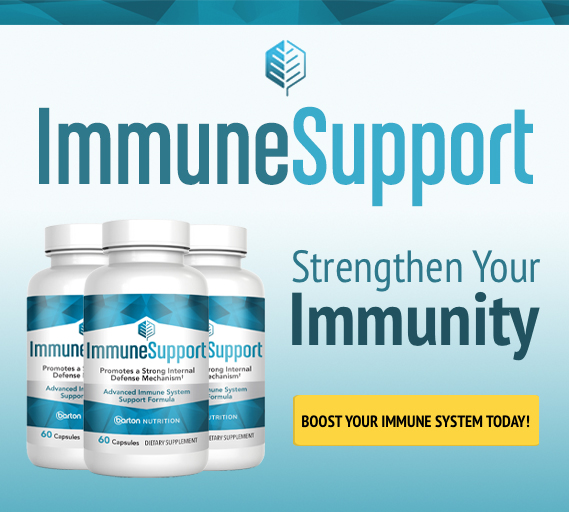The Spotty History of Vaccinations
Advancement and Evidence of Development
Small pox. The Plague. Polio. They all sound like ancient diseases—because they are, for the most part. However, what confuses people is what exactly eradicated them. Those who feel they have an answer to this fall into two different camps.
- Those that believe vaccines brought an end to these diseases.
- Those that feel advancements in society, such as sanitation, are to thank for controlling feared diseases.
This spotty history of vaccination takes you down a confusing road of advancements and evidence for both camps. But which do you believe?
Vaccine History
The first vaccine was given in 1796 by Edward Jenner, a doctor who lived in Berkeley, England: “Taking pus from a cowpox lesion on a milkmaid’s hand, Jenner inoculated an eight-year-old boy, James Phipps. Six weeks later Jenner variolated two sites on Phipps’s arm with smallpox, yet the boy was unaffected by this as well as subsequent exposures,” explains the authors of The History of Vaccines and Immunization (THVI).
Next came Louis Pasteur, a French chemist, who developed the rabies vaccine in 1885. While this was technically a rabies antitoxin to be taken post-infection, he was integral in defining the term we still use today for vaccine.
The current-day definition of vaccine is, “Suspension of live (usually attenuated) or inactivated microorganisms (e.g., bacteria or viruses) or fractions thereof administered to induce immunity and prevent infectious disease or its sequelae,” according to (THVI).
Between the years of 1890 and 1950, vaccine development was in full swing; during this time the Bacillis-Calmette-Guerin (BCG) vaccination was invented, which is still in use today, according to Immune.org. The introduction of immunizations in these years also included the diphtheria vaccine and the first licensing of the pertussis vaccine (Vaccine Timeline).
The next major vaccination moment came in 1967, when the WHO publicized a major campaign against small pox. Within 10 years the disease was non-existent.
Fast forward to 2014 and there are “no known cases” of Polio in India, which was once considered the Polio Capital of the World, according to How Plumbing (Not Vaccines) Eradicated Disease. (HPED)
Societal Advancements
Opposition to vaccination has existed as long as vaccination itself. In the 1800s, those opposed to vaccinations cited issues with religion, efficacy, sanitation, politics and science.
Anti-vaccination positions and vaccination controversies are not limited to the past. Those against vaccinations not only disagree with the safety, science and politics. They believe it was not vaccinations that ended many of our world’s deadliest diseases.
What did? Advancements in sanitation. There is no question that improved hygiene, sanitation and better living conditions helped to stop the transmission of many diseases. Diphtheria, measles and whopping cough declined due to better diet, living conditions, and sanitation. Vaccines played an insignificant role, if any, with eradicating these diseases.
2 Sanitation Case Studies
1.) During the 1800s in London, most people used pumps to get their drinking water. These pumps pulled water from the Thames River, which is where raw sewage and animal waste was often dumped.
During this time, cholera killed thousands of people, including 500 people in just 10 days in SOHO. However, Dr. John Snow determined that poor water sanitation was the cause of the outbreak. He traced it back to one contaminated pump. The pump was removed, and the epidemic quickly abated. He is now considered one of the pioneers of epidemiology and “father of public health.”
2.) In 1994, Rwandan refugee camps were constantly struggling with dysentery. Refugees had no access to bathrooms, and used common areas when they had to go. Heavy rains flooded the area, and within a day, 2,000 people were dead from the spread of disease. “Once U.S. and UN officials brought in purified water and encouraged people to use outhouses and latrines for defecation, the incidences of dysentery fell,” according to research by Organic Lifestyle Magazine.
Vaccinations in a Sanitary World
The question remains: What is really needed to stop and prevent disease?
A majority of the population adheres to the advice of Western medicine practitioners in regards to health care—these health professionals support the use of vaccines.
But it is simply unwise to blindly depend on information coming directly from vaccine makers’ PR departments, from health officials, agencies or foundations that are mired in conflicts of interest with the vaccine industry. The WHO, the governments of most developed countries, pharmacists, and doctors actually profit from promoting vaccines. What if, just what if, the same amount of money that has been spent on vaccines over the past decade had been spent on sanitation facilities, healthy, GMO-free food and clean water instead?
You can see how a trail clearly winds between these major players and vaccine profits at NaturalNews.com.
So the new question is…
Are government health agencies and vaccine manufacturers pushing vaccines because they’re keeping us from disease, or because they bring significant profits?
To Vaccinate or Not to Vaccinate?
Unfortunately, as is the case in most controversies, both the pro- and anti-vaccine movements provide valid claims, making it hard to decide what to believe. As such, it’s important to err on the side of caution.
Start by educating yourself with reliable vaccine information. Here are two sources to start your research:
- Use this list, from the Centers for Disease Control and Prevention, to get an idea of the many vaccines required for children and adults. Note that it does not include the ingredients in every vaccine.
- Use this list to check what can be found in the vaccines on the previous list.
Many who are against vaccines are simply against the amount given to children, at one time, at a very young age—49 doses of 14 vaccines before age 6, according to the National Vaccination Information Center.
Discuss this concern with a naturopath or holistic health practitioner for suggestions on how you can strike a balance between vaccinating and not vaccinating. If you believe that vaccinations cause autism or have other dangerous side effects, speak with them about alternatives.
Vaccines have a long and storied history, dotted with revolutions, discoveries and eradications. However, as with any complex story, there’s a catch—did vaccines really eliminate these diseases? Or, if in fact sanitation was responsible, why are we still using vaccines to keep our civilization healthy?
It’s up to you to find the right answer for you and your family. Seek out a naturopath you trust to discuss your options. Just because vaccines have a long history, doesn’t mean we have to believe they’re right for us now.























